Recent Posts
Winter House Fires Happen
2/20/2024 (Permalink)
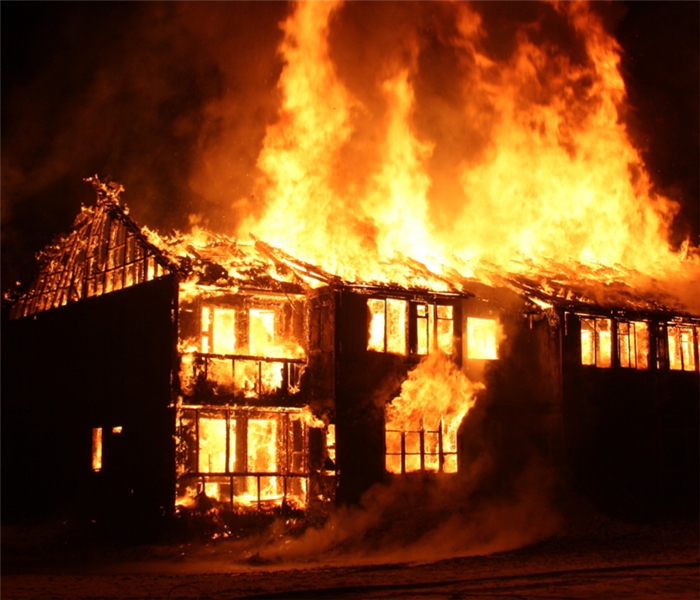 Remember to take the safety measures necessary to avoid a house fire.
Remember to take the safety measures necessary to avoid a house fire.
It’s officially winter so furnaces are turned on and we are spending more time indoors. Sometimes we forget that winter house fires happen, and sometimes more frequently than other seasons. Each year fires affect around 375,000 homes a year. House fires can be devastating and will cause over 7 billion dollars in damages each year.
Take some time to review these important safety measures to ensure that you are reducing your risk of experiencing a house fire:
- Avoid smoking while laying down. Surprisingly enough, people fall asleep while smoking and it is continuously a leading cause of fire related deaths.
- Unplug appliances that are not in use. Some appliances have automatic features that will keep the appliance on at all times so they can be turned on right away. These appliances should always be unplugged when not in use!
- Make sure that nothing is laying on top of power strips.
- Always unplug hair dryers, curling irons, and flat irons. Make sure these hair tools are always placed on a flat, hard surface. Soft surfaces or cloth can catch fire.
- Make sure portable heaters are 3 feet away from any object. Portable heaters are the second leading cause of house fires.
- When cooking food, do not leave the stovetop or oven unattended. Make sure to keep all pot and pan handles facing towards the wall and out of reach from children.
- Use baking soda to extinguish grease fires, as water will make them spread.
- Keep batteries in your smoke detectors and test them frequently.
How to Prevent Ice Dam Damage
12/26/2023 (Permalink)
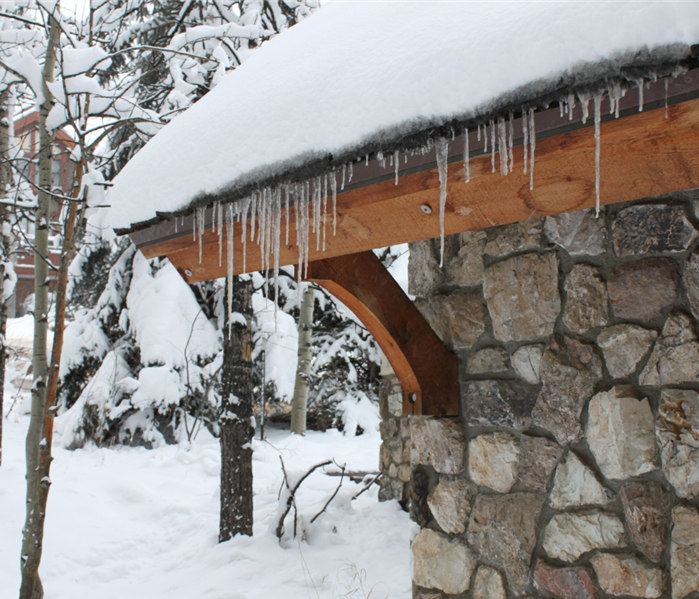 Ice Dams Can Cause Major Damage to Your Home
Ice Dams Can Cause Major Damage to Your Home
Icicles may look pretty on your house, but despite the dangers of the icicle itself, they are a sign that you have ice dams on your roof. Ice dams are the result of ice build-up on the eaves of sloped roofs. They can cause a number of problems if they are not taken care of properly.
Tips on avoiding ice dams and what to do if they form:
- Avoid ice dams by making sure your roof vents are cleared off regularly.
- Shovel the roof, or hire a company to remove snow 6-8 feet back from the edge.
- If you find yourself with an ice dam, call us today to ensure proper removal. Do not try to hammer the ice dam or use salt, this can result in damage to your roof.
- If the ice dam has caused interior damage to the home, give your insurance agent a call to see if your insurance covers ice dam property damage. Then give us a call and we can make it “Like it never even happened.”
How to Prevent Ice Dam Damage
12/26/2023 (Permalink)
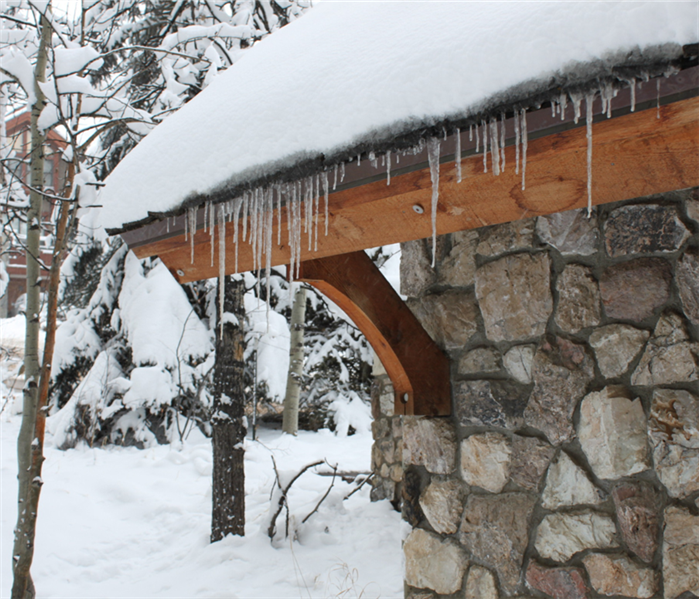 Ice Dams Can Cause Major Damage to Your Home
Ice Dams Can Cause Major Damage to Your Home
Icicles may look pretty on your house, but despite the dangers of the icicle itself, they are a sign that you have ice dams on your roof. Ice dams are the result of ice build-up on the eaves of sloped roofs. They can cause a number of problems if they are not taken care of properly.
Tips on avoiding ice dams and what to do if they form:
- Avoid ice dams by making sure your roof vents are cleared off regularly.
- Shovel the roof, or hire a company to remove snow 6-8 feet back from the edge.
- If you find yourself with an ice dam, call us today to ensure proper removal. Do not try to hammer the ice dam or use salt, this can result in damage to your roof.
- If the ice dam has caused interior damage to the home, give your insurance agent a call to see if your insurance covers ice dam property damage. Then give us a call and we can make it “Like it never even happened.”
What To Do When You Discover a Burst Pipe
3/13/2023 (Permalink)
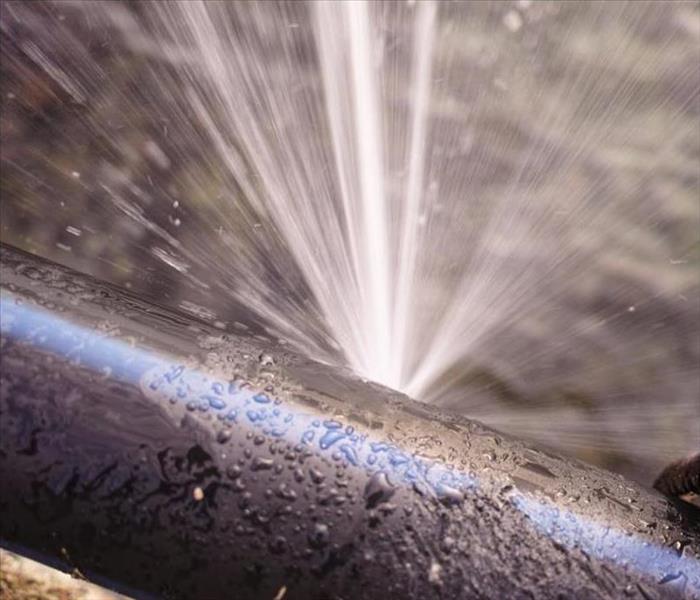 Call the pro's if you experience water damage to your home or property.
Call the pro's if you experience water damage to your home or property.
Winter is hard enough, but when you find a broken water pipe it makes it that much worse. While most water pipe breaks do happen in the winter, it can happen in the warmer months as well. Even if you have never had to come across a burst pipe, it is very important to be prepared so you know what to do if it ever happens. Here are three steps that you should take if you happen to come across a broken pipe:
Shut Off Water
Know where the main shut off valve is. It is crucial to turn off the water as soon as the broken pipe is found to avoid further damage to the property. Once the water is stopped, you can focus on the ruptured pipe and further assess the damage.
Contact Your Insurer
Take the time to read over your insurance policy to see if you will be covered for broken pipe damage. Depending on if the pipe burst was a result of homeowner neglect or not, the damage may or may not be covered.
Begin Cleanup Phase
After calling your insurance agent and determining if you are covered or not, your next call should be to a restoration specialist to begin the cleanup phase. Remember the longer you put off the restoration, the worse the damage can become. Leaving standing water for a long period of time can result in property damage and mold issues.
Evacuation Plan For Those Who Need Assistance
2/15/2023 (Permalink)
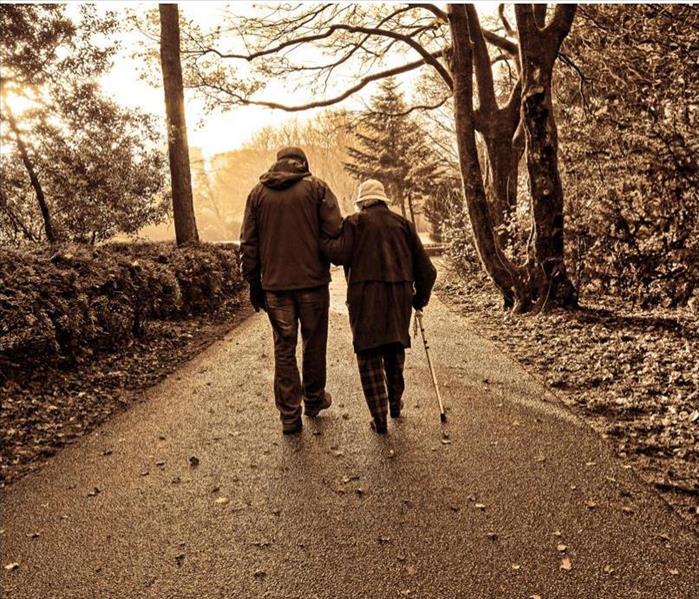 When disaster strikes, have an evacuation plan.
When disaster strikes, have an evacuation plan.
Do you know and love someone who may have a disability such as deaf, blindness, or immobility? Maybe you know someone who is unable to move as quickly as necessary during an evacuation. Most of us can name at least one person that they know who might need assistance in case of an evacuation.
It is important to have a set plan for your loved ones in case of an emergency evacuation due to storm, fire, or flooding. Follow these steps to ensure the safety of those who need assistance:
- Have an emergency kit ready and accessible.
- If person has hard hearing, always have a backup battery for hearing aids
- Install a strobe light smoke alarm for those who are hard of hearing or deaf
- Have a backup cane in a safe place in case of an emergency
- Create multiple escape plans in case of emergency
Be Prepared: How to Protect Your Commercial Property
1/16/2023 (Permalink)
 Know your plan of action before disaster strikes!
Know your plan of action before disaster strikes!
Do you have a plan in place in case disaster strikes your commercial building? It is so important to be prepared BEFORE a fire, water, or storm event happens.Without a plan, your costs can skyrocket. Here are a few strategies to avoid future headache:
Keep Important Items Above Ground Level
If a disaster event takes place and floods any areas of storage, it can leave a real mess. Make sure to keep important documents, inventory, tools, and electronics above ground level in case of flooding.
Backup All Data
Always, always, always backup your data! We live in a digital world and to lose digital data can quickly destroy a business. It is so important to keep your data in a cloud to ensure that you can always recover it. Local computer experts can help you with this if you need.
Have an Emergency Ready Plan (ERP) in Place
Nobody plans for damage to their property and it can be difficult to gauge just how much damage may occur. At SERVPRO of Douglas & Otter Tail Counties we encourage all businesses, large or small, to create an ERP. From planning a fire evacuation route to wearing a seatbelt, we are planning for the unexpected everyday. Why not protect your business with a foolproof plan that all employees can follow? Consider scheduling a meeting with your local SERVPRO Sales and Marketing Representative to discuss setting up an ERP today.
Keep Snow Cleared from Gas Meters and Vent Pipes
12/12/2022 (Permalink)
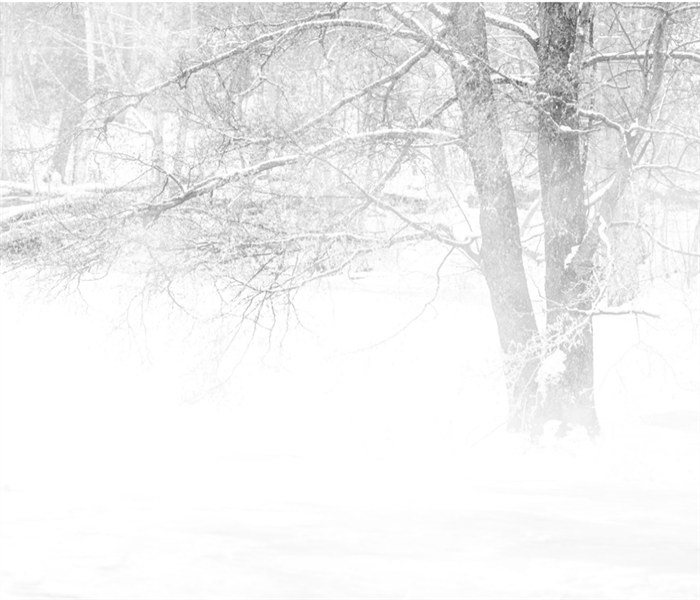 Have you cleared the snow from your meters and vents?
Have you cleared the snow from your meters and vents?
Keep Snow Cleared from Gas Meters and Vent Pipes
There are a lot of things we think about after a snowstorm such as plowing the driveway and clearing the snow and ice from the roof, but do you always remember to clear the snow from outside meters and vents? It is extremely important to keep these areas cleared.
Exhaust vents for water heaters, furnaces, or fireplaces should also be kept clear and free from snow/ice. If the exhaust cannot escape through the vent, you risk carbon monoxide buildup inside the property.
When clearing these areas outside of your home or business, make sure you do it carefully. Melting with a heat source or chipping/scraping can damage the equipment and cause further problems down the road. Instead, use a broom or brush to rid the snow.
What is IICRC Certified?
10/24/2022 (Permalink)
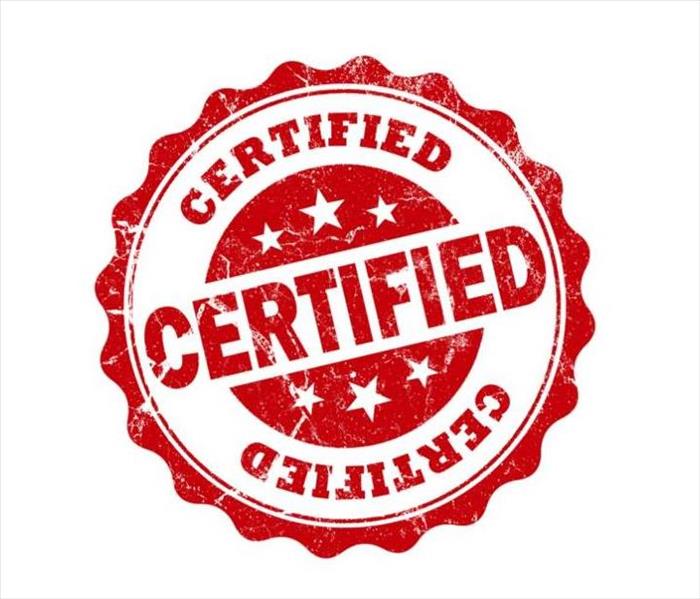 What does IICRC certified mean?
What does IICRC certified mean?
What Does IICRC Stand for?
IICRC stands for “The Institute of Inspection, Cleaning, and Restoration Certification.” They are a non-profit organization that was formed in 1972.
What does the IICRC Do for Restoration Companies?
The IICRC creates the standards held within the restoration industry and provides the training and resources to restoration companies to complete certification. An IICRC firm has the right to display the IICRC Certified Logo.
What does IICRC Certification Mean to SERVPRO of Douglas and Otter Tail Counties?
The IICRC Certification gives the SERVPRO of Douglas and Otter Tail Counties customers the comfort of knowing that our crew has the knowledge and experience to work on their home or business. Our crew has dedicated time and effort to learn the correct protocols when working restoration.
Have Questions? Call SERVPRO of Douglas & Otter Tail Counties - (320)219-6505
Your Local Cleaning, Restoration, and Construction Company.
Barn Cleaning in West Central Minnesota
9/22/2022 (Permalink)
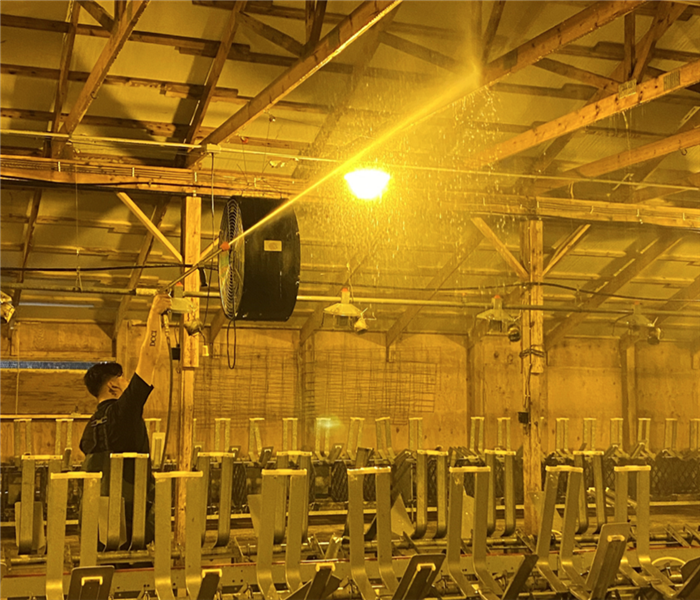 Schedule your barn cleaning with us today!
Schedule your barn cleaning with us today!
Did you know we offer livestock barn cleanings? We clean barns across Minnesota and North Dakota, regularly making sure that they are up to standards.
Cleaning a livestock barn is a lot of work! Tackling it on your own can feel daunting. Our crew of professionals can take that stress off your back. When hiring us to clean a livestock barn, we will ensure that your barn will be left clean, safe for the animals, and smelling fresh. Well… as fresh as a barn can smell! Whether you raise cattle, turkeys, swine, or any other type of livestock, we can do it all.Call us today to schedule your next barn cleaning.
Book Your Cleaning Today! Call SERVPRO of Douglas & Otter Tail Counties – (320)219-6505
Your Local Cleaning, Restoration, and Construction Company.
Do I Wait to Clean Up Until an Adjuster Comes to Document the Damage?
9/15/2022 (Permalink)
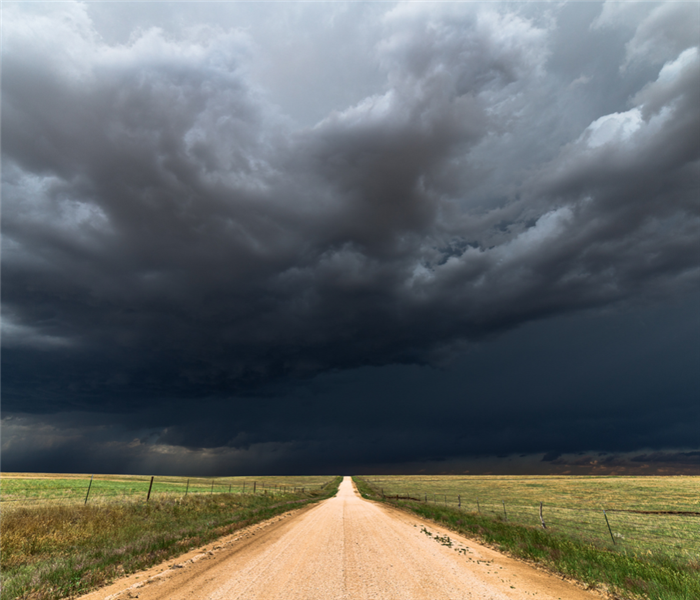 While you might not have to wait for an adjuster to start the clean up process, you should always take extensive photo and video of the damage!
While you might not have to wait for an adjuster to start the clean up process, you should always take extensive photo and video of the damage!
After experiencing storm damage you may wonder, do I wait for an adjuster to come and assess the damage before I can start cleaning up and moving my things?
The answer is no.
An insurance adjuster does not need to witness the damage to process a claim, but will require you to document the damage if you decide to begin cleaning up. Take extensive photos and videos, while also listing damaged property and recording their condition and value.
Side note: Do not throw any damaged items away, as your adjuster may want to take note of these items
Adjusters are Likely Busy with Multiple Claims
If your property was affected by a storm, it is likely that neighboring properties are as well. This will result in a number of claims for insurance companies and it may take adjusters awhile to actually follow up on your claim.
Further Damage Can Happen the Longer You Wait
The longer you allow damage to sit, the worse it can get, especially water damage. If you let the water sit too long it can result in mold issues. Mold damage can emerge between 24 and 48 hours after water or moisture is present. Make sure to take action as soon as possible to avoid this outcome.
Have Questions? Call SERVPRO of Douglas & Otter Tail Counties – (320)219-6505
Your Local Cleaning, Restoration, and Construction Company.






 24/7 Emergency Service
24/7 Emergency Service









